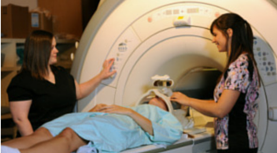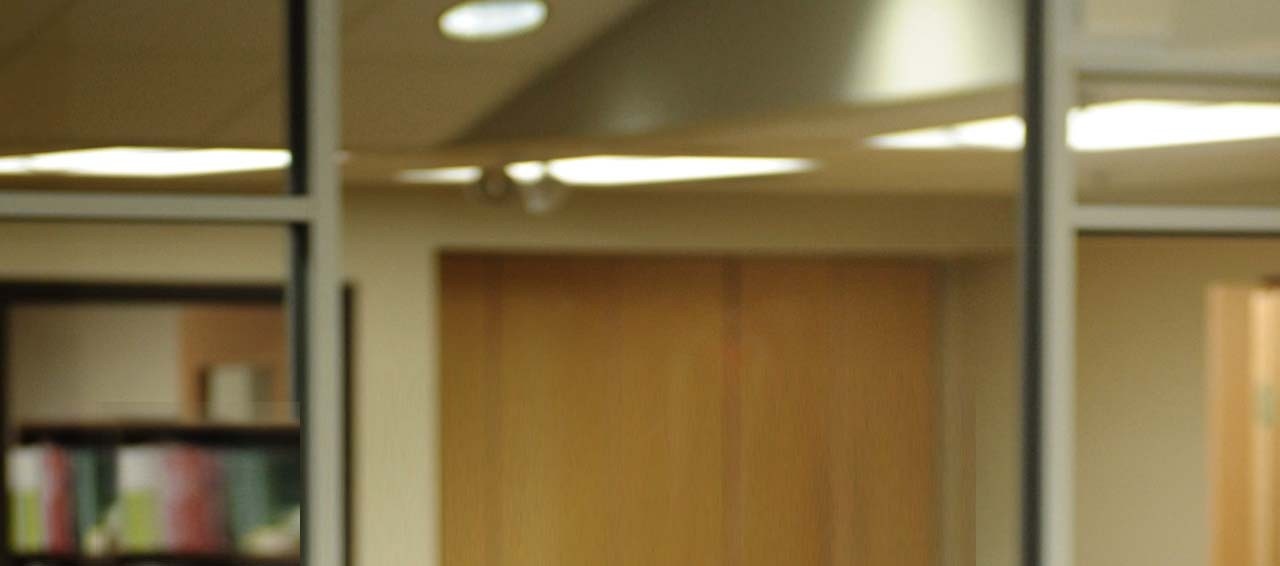Certificate Program in MRI

The School of Health Sciences offers an accredited second-discipline 27-credit hour certificate in Magnetic Resonance Imaging (MRI).  It is available to:
- Current entry level School of Health Science (SHS) students in their fourth year in Diagnostic Medical Ultrasound, Nuclear Medicine Technology and Radiological Technology;
- Post diploma SHS students in the medical imaging fields (Diagnostic Medical Ultrasound, Nuclear Medicine Technology, or Radiological Technology) pursuing the MRI certificate as part of their BHSc degree;
- School of Health Sciences Alumni from programs of Diagnostic Medical Ultrasound, Nuclear Medicine Technology and Radiological Technology;
- Graduates of Canadian accredited degree programs in Radiological Technology and Nuclear Medicine Technology.  (Applications from current Canadian entry level students in the final year of their degree program in Nuclear Medicine Technology or Radiological Technology may be considered on condition of proof of successful completion prior to the beginning of classes in the MRI Certificate program.);
- Canadian certified/licensed Imaging Technologists in Diagnostic Medical Ultrasound, Nuclear Medicine Technology or Radiological Technology who may choose to complete the certificate in magnetic resonance imaging as a stand-alone certificate.
 The 27 credit hour certificate program requires successful completion of:
- : Cross Sectional Anatomy for Multimodality Imaging
- : MRI Physics
- : Advanced MRI Physics
- :  MRI Instrumentation, Safety and Contrast Media
- :╠řMRI Techniques and Applications
- DMUT 4000.12, NUMT 4000.12, or RADT 4000.12: Specialty Practice in MRI
- Specialty Practice in MRI is a 12 credit hour course typically offered June-Sept or Aug-Nov. Clinical start dates may vary. This course is a 16 week clinical specialty practice that builds on the knowledge gained in the academic MRIT courses. During this specialty practice students will perform MRI procedures at an approved clinical MRI site, under the supervision of registered MRI Technologists (preceptors).┬á This course will emphasize:╠ř
- MRI safety guidelines and screening procedures
- Developing patient care skills within the MRI environment
- Enhance knowledge of cross sectional anatomy and pathology as visualized in MR images
- Collaborating with other health care professionals
- Performing MRI procedures. Students are expected to become competent in all areas of MRI scanning.  The theoretical component will challenge students to develop decision-making skills to optimize MRI sequences as they study MR imaging tradeoffs.
- prerequisites:╠řMRIT 4120, 4130, & Venipuncture Competency**
- Course Descriptions may also be found within the current for Undergraduate programs
- Specialty Practice in MRI is a 12 credit hour course typically offered June-Sept or Aug-Nov. Clinical start dates may vary. This course is a 16 week clinical specialty practice that builds on the knowledge gained in the academic MRIT courses. During this specialty practice students will perform MRI procedures at an approved clinical MRI site, under the supervision of registered MRI Technologists (preceptors).┬á This course will emphasize:╠ř
- **Venipuncture Competency (This is a non-credit requirement):  Students will be required to provide proof of venipuncture competency prior to beginning Specialty Practice.  Students will use this foundational skill in gaining IV injection competency during Specialty Practice.  Clinical site preceptors will instruct students on the proper technique for IV insertions and help students achieve competency in IV set-up and delivery of contrast media for MRI exams.
Clinical Requirements
Clinical site criteria must be met as a requirement of admission. Students enrolled in this program must meet School pre-enrollment and clinical requirements, including BLS-HCP certification and Standard First Aid.  Contact health.sciences@dal.ca for further details.  Enrollment is limited by clinical site availability; preference is given to current School of Health Science students and alumni. 
Information
Current BSHc students (entry level) who pursue the MRI certificate will complete courses/credit hours in addition to their normal degree requirements. Entry level students in NUMT and RADT will complete 12 credit hours beyond the degree requirement and DMUT students will complete three credit hours beyond the degree requirement. Completion of the MRI certificate will require students enrolled in a degree program to study beyond the usual 4-year time frame.
Please also refer to the School of Health Sciences .
Upon approval from the MRI Advisor/Admissions committee, students must enroll in the Certificate in Magnetic Resonance Imaging.  To enroll, students must declare the certificate through Dal Online (https://dalonline.dal.ca > Web for Students > Admissions > Declare Major/Minor/Certificate).
School of Health SciencesÔÇÖ Alumni and external applicants who have been accepted into the program, but are not currently enrolled with Dalhousie, are also required to submit an application for admission to the University as a ÔÇťSpecial UndergraduateÔÇŁ under the Faculty of Health before declaring the certificate through DalOnline. ┬á
To graduate with the Certificate, students must apply to graduate with a Certificate per the timelines determined by the Registrar's Office.
Admissions Requirements
Students enrolled in the BHSc programs in Diagnostic Medical Ultrasound, Nuclear Medicine Technology or Radiological Technology may apply internally to the School through the MRI advisor. Current BHSc students must have:
- Cumulative GPA of 3.3
- B+ or higher in discipline specific-physics (HSCE 2020 or DMUT 2020)
- Approval of a completed safety screening form
- Proof of current CPR-HCP and Standard First-Aid
Certified/licensed Imaging Technologists should also apply directly to the School of Health Sciences MRI advisor. Admission requirements are:
- External applicants and students enrolled in the SHS post-diploma program must contact the MRI advisor prior to submitting an application to determine if a Prior Learning Assessment (PLA) is required.
- Successful completion of program accredited through Accreditation Canada in a medical imaging discipline of diagnostic medical ultrasound, nuclear medicine technology, or radiological technology. (Applications from current Canadian entry level students in the final year of their degree program in Nuclear Medicine Technology or Radiological Technology may be considered, on condition of proof of successful completion prior to the beginning of classes in the MRI Certificate program.)
- Currently licensed to practice by the Canadian Association of Medical Radiation Technologists (CAMRT) in the fields of nuclear medicine technology or radiological technology, 
                                               ----------------------or----------------------
Licensed/registered in good standing with provincial college/regulatory body within Canada in the medical imaging field of diagnostic medical ultrasound
Documentation required:
- Official transcript of diploma or degree program and/or licensure;
- Current registration number with CAMRT or applicable provincial college (or copy of license/certification);
- Letter of Intent
- ŞÚ▒▓§│▄│ż▒╠ř(contact references may be requested after review of application
Guidelines for Letter of Intent:╠ř┬áThis letter provides the opportunity for applicants to expand upon their experience, any advanced or specialty education they may have and their interest in undertaking university studies or pursuing a certificate in MRI. Information to include:
- Work experience and/or education;
- Educational initiatives undertaken since diploma/degree completion (if applicable);
- How applicant thinks this program will contribute to the professional development;
- Personal and professional motivation
- Readiness for university education in MRI studies
Application deadline date for the MRI Certificate program is March 1st for the program start in late June. 
Please contact the School of Health Sciences' MRI advisor for more information regarding the MRI certificate program.
Requirements of the Professions
Statement of Fitness:╠ř The Health Professional courses in the School of Health Sciences are intellectually, emotionally, and physically demanding.┬á As a potential applicant, it is important that you familiarize yourself with the performance expectations and requirements to practice safely and competently before applying to the program, so you can asses your own ability to meet the career requirments. See [PDF -15 KB]
Accreditation:╠ř The ║┌┴¤│ď╣¤═°School of Health Sciences Certificate Program in MRI is accredited by Accreditation Canada. For more information go to┬á┬áto view the list of accredited magnetic resonance imaging programs.
